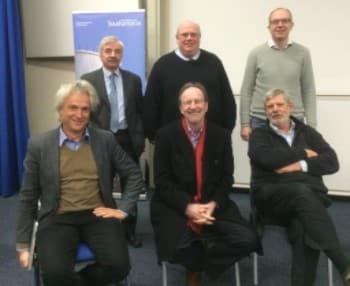A pioneer in sustainable technology, Bennamann chose the World Biogas Expo 2025 to launch onto…
“World class” anaerobic membrane event
Last Thursday I attended a workshop organised by the Anaerobic Digestion Network on the use of membranes in anaerobic bioprocesses. I didn't know what a membrane was before attending, so luckily one of the Southampton University PhD students gave me a brief description before the event started. Membranes are essentially very fine filters inside the reactor that only allow water and soluble material to filter through, providing complete solid-liquid separation and thus avoiding slow-growth anaerobic microorganisms from being washed out of the reactor. This results in an increase of the anaerobic digestion efficiency as well as in very high quality effluents.
Their use is currently quite low in the AD sector. But their use will rise if society focuses more on efficient resource use.
We heard from the very best academics in the field. This included Professor David Stuckey of Imperial College London and Professor Jules van Lier of Tu Delft in the Netherlands. Profs Charles Bank of Southampton and Bruce Jefferson of Cranfield completed the line-up of academincs, and two industry professionals also discussed commercial applications.
We couldn't have hoped for a better line-up. It was a specialist subject but having the best in the world talk about why this particular aspect of biorefining will be increasingly important was fascinating. A real debate.

Some big questions were asked: why do water companies still use aerobic treatment when the rational choice would now be to use anaerobic membrane bioreactors? Why aren't membranes being used to extract nutrients from digestate? And off-topic: why isn't research being conducted on using duck-weed to absorb nutrients from digestate for use as animal feed?
It was a real privilege to attend. The breaks at the event were full of discussion of the world class quality of the speakers, as well as debate on the potential for different approaches in AD and where the industry will be in five or ten years.
We hope to have an equally-exciting line-up for our Research and Innovation Forum to be held in April. Please pass on to all researchers that we want to hear their views on what research will change the industry over the coming years – call for papers closes 29 January.
